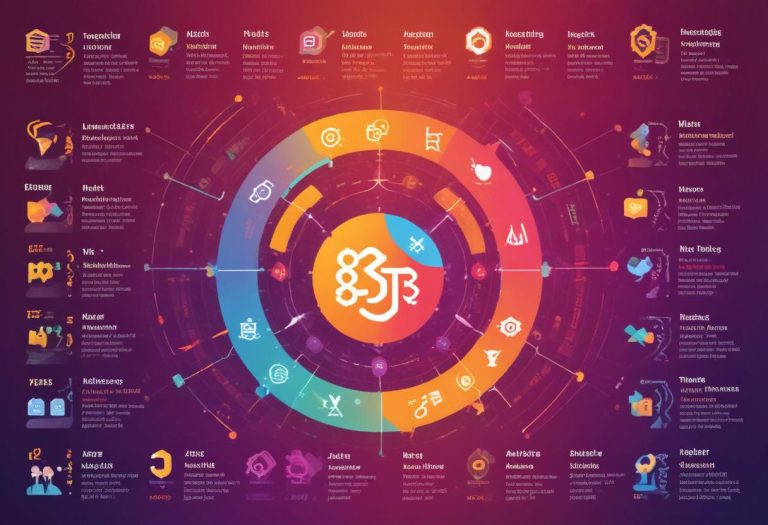In recent years, artificial intelligence (AI) and machine learning (ML) have emerged as transformative forces in the fields of web and mobile development. These technologies are not just buzzwords; they are pivotal in driving innovation, improving user experiences, and streamlining development processes. Here’s an exploration of the role AI and ML play in shaping the future of web and mobile development.
1. Personalization and User Experience
One of the most significant impacts of AI and ML in web and mobile development is the ability to create highly personalized user experiences. Modern users expect more than just a functional app or website; they demand interfaces that understand their preferences, behaviors, and needs. AI algorithms analyze vast amounts of user data to tailor content, recommendations, and interfaces in real time.
For instance, e-commerce platforms leverage AI to recommend products based on past purchases, browsing history, and even social media activity. Similarly, news apps use machine learning to curate articles that match the user’s interests, ensuring that they see content that is most relevant to them. This level of personalization not only enhances user satisfaction but also drives engagement and retention.
2. Automation in Development
AI and ML are revolutionizing the development process itself by introducing automation at various stages. From code generation to testing and deployment, these technologies reduce the manual effort required, allowing developers to focus on more creative and complex tasks.
For example, AI-powered tools can automatically generate code snippets based on natural language descriptions, speeding up the coding process. Machine learning models are also being used to identify bugs and suggest fixes, making debugging faster and more efficient. In testing, AI can simulate user interactions, predict potential issues, and ensure that applications perform well across different devices and scenarios.
3. Enhanced Security
Security is a critical concern in web and mobile development, and AI plays a crucial role in safeguarding applications against threats. Machine learning algorithms can detect unusual patterns of behavior that might indicate a security breach, such as a sudden spike in login attempts or data transfers. These systems can then alert developers or automatically take action to prevent unauthorized access.
Moreover, AI is being used to enhance authentication processes. Biometric authentication, such as facial recognition and fingerprint scanning, is increasingly common in mobile apps, thanks to advances in AI. These methods provide a higher level of security compared to traditional passwords, reducing the risk of fraud and data breaches.
4. Voice and Chat Interfaces
The rise of voice-activated assistants like Siri, Google Assistant, and Alexa has underscored the importance of AI in creating intuitive, natural user interfaces. Integrating voice recognition and natural language processing (NLP) into web and mobile applications allows users to interact with software in a more human-like manner.
Chatbots powered by AI are another example of this trend. These virtual assistants can handle customer inquiries, book appointments, and even provide personalized recommendations without human intervention. As AI continues to evolve, we can expect these interfaces to become even more sophisticated, offering users a seamless, conversational experience.
5. Predictive Analytics
Predictive analytics, driven by AI and ML, is transforming how businesses approach decision-making in web and mobile development. By analyzing historical data, machine learning models can forecast user behavior, market trends, and potential risks. This insight allows companies to make informed decisions about product features, marketing strategies, and more.
For example, a mobile app developer might use predictive analytics to determine which features users are likely to engage with most, allowing them to prioritize development efforts accordingly. Similarly, e-commerce platforms can use these insights to optimize pricing strategies and inventory management.
6. Improved Accessibility
AI and machine learning are also making web and mobile applications more accessible to users with disabilities. For instance, AI-powered screen readers can provide more accurate descriptions of on-screen content, and machine learning algorithms can automatically generate alt text for images. Voice control features, powered by AI, enable users with mobility impairments to navigate apps without touching the screen. These advancements are crucial in ensuring that digital products are inclusive and usable by everyone, regardless of their abilities.
7. Future Trends and Opportunities
The integration of AI and ML into web and mobile development is still in its early stages, and the possibilities are vast. As AI technology continues to advance, we can expect even more innovative applications. For instance, AI could enable real-time translation of content in web and mobile apps, breaking down language barriers and making digital products accessible to a global audience.
Additionally, as AI models become more efficient, they will be able to run directly on mobile devices, reducing the need for constant cloud connectivity and enabling more responsive and privacy-conscious applications.
Conclusion
AI and machine learning are no longer optional add-ons in web and mobile development—they are essential tools that can drive innovation, enhance user experience, and streamline development processes. As these technologies continue to evolve, their impact on the digital landscape will only grow, offering developers new opportunities to create smarter, more responsive, and more personalized applications. The future of web and mobile development is undoubtedly intertwined with the continued advancement of AI and ML.






